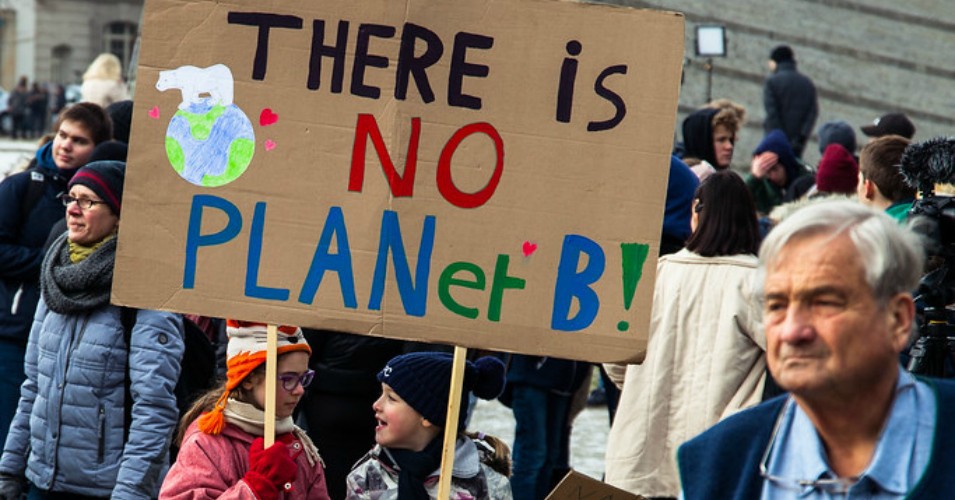
World Earth Day (April 22) is a good time to suggest solutions for the climate crisis, so here is a 20-point plan that will definitely solve the climate crisis within a framework of increasing justice, peace, cooperation and democracy —
1.Reduce inequalities significantly, help the poorest peasants and workers much more, curb high luxury consumption of the richest in a big way. This will help to reduce overall burden on environment while at the same time increasing the resilience of the poorest, their ability for better adaptation in difficult times as well as their ability to contribute to checking climate change in very creative ways.
2.There should be a huge, continuing, convincing campaign to check all those forms of consumption which are harmful for health. While tobacco and alcohol in their various forms are the most ready targets for such a campaign, reduction of consumption and use of many other goods will help both health and environment.
3.There should be consistent efforts for promoting value systems which discourage high luxury and ecologically destructive consumption/accumulation, while at the same encouraging voluntary simplicity.
4.There should be firm commitment to a no-wars future, curbing the arms race and eliminating all weapons of mass destruction.
5.About 90% of the army, air force, navy and other military forces of the entire world should be diverted, with their salary and benefits protected, to the tasks of restoration of devastated ecosystems, disaster protection and rescue effort.
6.The concept of citizenship of world, one world and peace for all world should be promoted at all levels, with people being encouraged and helped all the time in terms of accepting the responsibility , high relevance and great virtue of being protective towards all life on earth as the highest calling on earth.
7.Food and cultivable raw materials like cotton should be produced entirely on the basis of sustainable livelihoods of small farmers and family farmers, using organic, natural and self-reliant ways, using mixed farming and crop rotations which protect soil and save water, increase the organic content of soil. GM crops should be entirely banned, farming should be on the basis of traditional biodiversity best adapted to local conditions. There is much less room for chemical fertilizers or for heavier forms of machinery and the fossil fuels they gulp, hardly any room for chemical pesticides and herbicides, and much more for the creativity of small farmers. All small farmers should be encouraged to have a few indigenous species trees on their small mixed farms.
8.There should be a sustained campaign for healthier ad ecologically protective food habits, so that we have more of organic, local whole grains and legumes, fruits and vegetables, and less of meat and dairy products, highly processed, high salt and sugar foods.
9.There should be increased emphasis on using/consuming food and other essential needs from local or nearer sources, while international and far away trade should be limited more to where it is really needed in terms of meeting important requirements. The promotion of largely self-reliant rural communities should be encouraged in various ways.
10.Greater emphasis on retaining a rural base of human civilization should be encouraged, as rural areas are more conducive to environment protection, while the tendency of equating urbanization with urban progress should be given up.
11.The most neglected section of rural landless people can be drawn into a very important program of afforestation of wastelands with mixed indigenous trees, resembling a local natural forest, which provides them satisfactory sustainable livelihoods. While this program can be very big at national level, it consists of small units of land in the hands of small landholders, working in highly decentralized ways according to local conditions, and hence this is an entirely different concept from industrial monoculture plantations.
12.In energy, manufacturing, housing and other activities, dependence on fossil fuels should be phased out as much as possible and use of renewable sources should be encouraged, while adequate care should be given to avoiding all potentially ecologically disruptive technologies. Mining should be ecologically manageable, never disruptive.
13.The rapid introduction of many high hazard, high risk untested technologies, chemicals and products in the name of progress should be checked.
14.The creativity of peasants, workers and other ordinary people to contribute to climate change mitigation and adaptation in hundreds of important ways in daily life should be encouraged.
15.Educational systems should provide adequate space for the young to think with independent creativity for resolving climate change and related issues, and to contribute to this.
16.Waste management should be improved, based on segregation at source level and decentralization. Waste should be minimized in various ways.
17.Water conservation and proper water management practices, with emphasis on decentralized solutions and avoiding large dams and inter-basin transfers, should be prioritized.
18.Disaster management, disaster response and climate change adaptation work, including flood protection in particular, should improve, learning lessons from past mistakes.
19.Policy reform should focus on making room for brave new thinking, which would allow much wider and bigger changes, instead of remaining addicted to very narrow frameworks. If present problems are so big and unprecedented, accordingly we should be able to think of very new and out-of-box solutions.
20.The role of people’s movements and youth movements in resolving climate crisis should get much more attention.
The program outlined above has the additional advantage of resolving many other big problems at the same time, or least preparing the way for this.
Bharat Dogra is Honorary Campaigner, Campaign to Save Earth Now. His recent books include Planet in Peril, A Day in 2071, Protecting Earth for Children, Earth without Borders and Man over Machine.















































